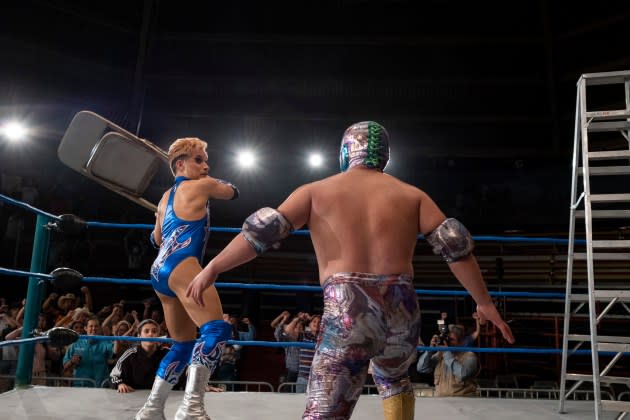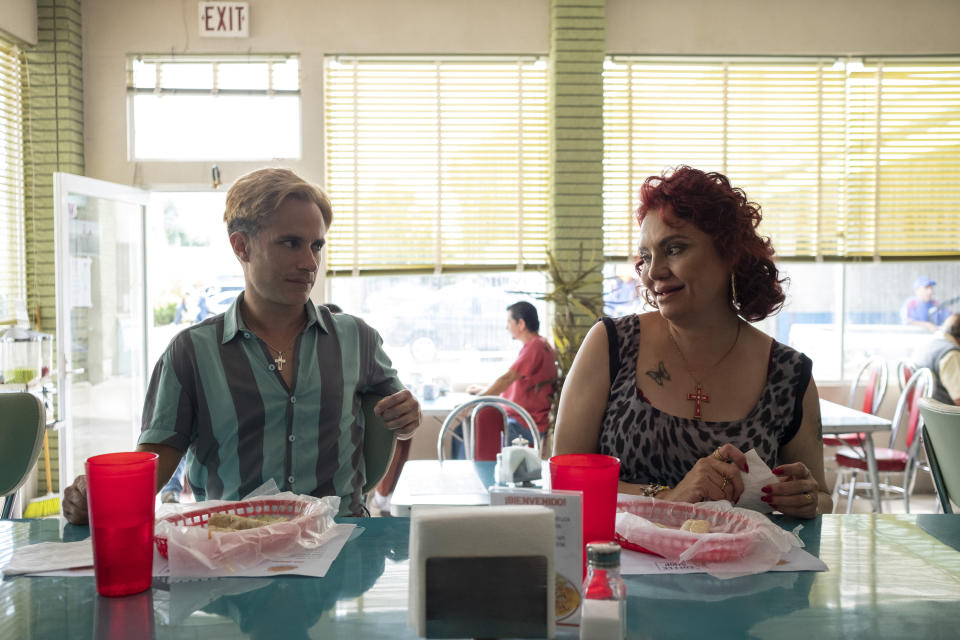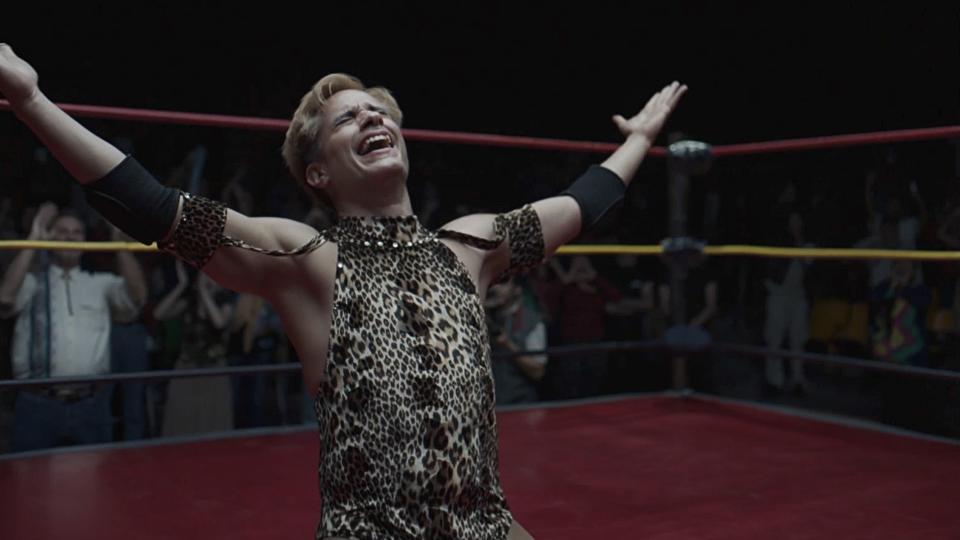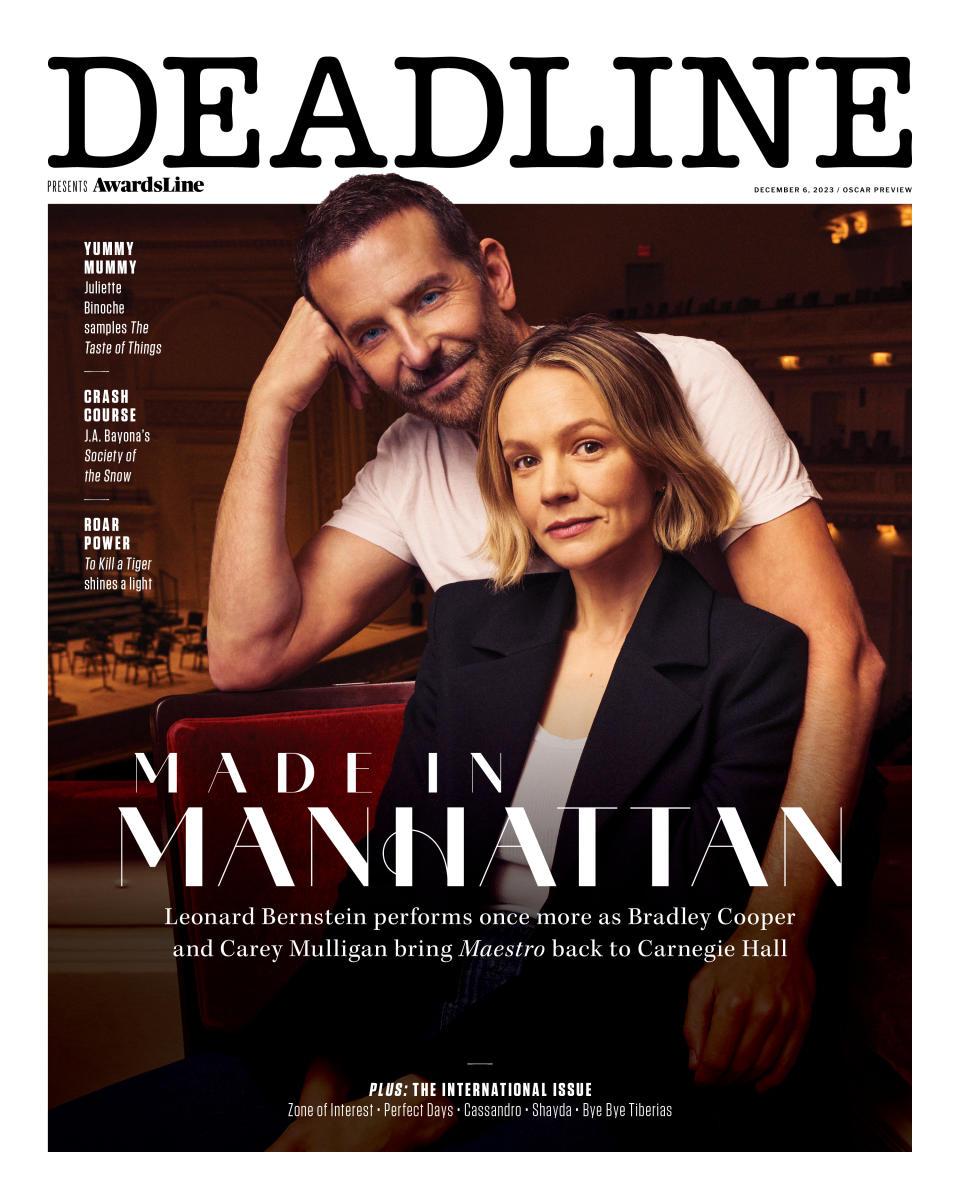‘Cassandro’ Star Gael García Bernal Pins Down The Exotic Appeal Of A Pioneering Gay Mexican Luchador

Roger Ross Williams’s inspiring biopic Cassandro is a window on the world of Saúl Armendáriz, an amateur wrestler from Texas who made it big on Mexico’s luchador scene. Played with tenderness and charm by Gael García Bernal, the film charts how Armendáriz’s life changed when he abandoned his masked persona as El Topo (The Mole) and became an exótico, a flamboyant figure in make-up, leopard skin and spandex. Cassandro, as he now called himself, was a pioneer, showing the macho world of contact sport that gay men could be fighters too — and win.
DEADLINE: How did you get involved in making this movie?
More from Deadline
GAEL GARCÍA BERNAL: The standard way. The director came to me, because he’d done a documentary about the real Saúl Armendáriz and his alter ego, Cassandro. He told me he wanted to do a movie about him, and immediately I remembered growing up with Cassandro and all the other luchadors, and I started to get excited by it. But it was still in the works. It was one of those projects that was like, “OK, it might happen eventually.” And then, like all good things, it just started to happen little by little. I forget what led up to that, but there were many, many different factors that helped put it together. I started training six months before — obviously, I was eating a lot and doing a lot of weight and flexibility work, all those kinds of things — and then, a couple of months before shooting, I was doing full-on luchador training. It was amazing, and so much fun.
DEADLINE: Did you have to be vetted by the real Cassandro? How did you win his trust?
BERNAL: I guess Roger and him had conversations about that. I spoke with Cassandro very little before shooting. We were going to take whatever we knew about Cassandro and kind of make it our own. I mean, his character was already very stylized. It was like, “OK, we have to make something different for the movie.” And then, while we were shooting the film, Cassandro had a head injury, so he was not able to talk for a little while, so I didn’t speak with him until afterwards. But we saw each other when we finished shooting. He was very happy, I think.

DEADLINE: The way you play him, he’s a very funny, theatrical performer. Did you study his mannerisms, or did you improvise?
BERNAL: It’s always a mix, isn’t it? Whenever somebody imitates someone else, there’s that other, added element that the person brings to the table — like a little underlining, a little exaggeration of their mannerisms — that kind of takes them into another place. So, yeah, there was a lot of him, but obviously there was a lot of me as well.
DEADLINE: You’re certainly not afraid of the costumes!
BERNAL: No, no, no, no, no! [Laughs] I really, really couldn’t wait to get to that point! Because before that, the training and everything was hard. Everything was either physical or psychoanalytical, in a way. But then there comes the part of the costume, which just transforms you immediately. And with María Estela Fernández, the costume designer… Man, we had so much fun putting them together. She told me, “Cassandro is like a colleague — he makes his own costumes as well!” We were trying out so many different things. She was very hands-on, and we had some amazing costumes: the capes, the bodices. We were getting really, really high with those shorts as well — like hot pants — to show my legs.
DEADLINE: You have some pretty awful hairstyles in the movie. Did you have it cut for real?
BERNAL: That was my hair. It was dyed in that color, and I had to live with it outside of the film. People wouldn’t recognize me. Friends of mine wouldn’t recognize me when they saw me from far away. They were like, “Who is this guy?”
DEADLINE: Did you go into the real world of lucha libre?
BERNAL: Yes, of course. Yeah. I trained a lot with an organization called La Triple A, which is one of the biggest organizations in lucha libre in Mexico. They have great wrestlers, and they have many teachers, and they are very strong pillars of the wrestling community. There were two in particular, one called Chessman and another one called El Texano Jr. They were great, and they helped us a lot. They invited us to train with real wrestlers, with the young up-and-coming wrestlers that were training, and so we would do their training too.
I’ve got to say, this was one of the most difficult things I’ve ever done in my life. It was very, very hard. Physically I couldn’t keep it up. For example, as a warmup, you have to do 100 deadfalls on your back, so you learn how to fall and not hurt yourself. And they have a lot of that. They have a lot of wrestling training, and a lot of judo training, in order to know how to fall. It has a lot of techniques that are from the acrobatic world as well, like getting into the ring. You learn how to play with the ropes, because you have to know how to hold them, because they can really hurt you.
DEADLINE: It’s a refreshing change to see a gay character that doesn’t get beaten up or persecuted. Obviously Cassandro faces prejudice, but he’s in charge of his life. There’s no victimhood there. Was that an important part of the story to you?
BERNAL: Absolutely, absolutely. Because it’s not a first-degree kind of story about a coming of age or someone coming out, it’s more like a third- or fourth- degree moment of how society has shifted. And that’s what’s interesting about this film, because we can do a big sort of anthropological and sociological analysis of how society all over the world has dealt with homosexuality, and how attitudes have changed so much in recent years. But in the wrestling world, for example, in Mexico, it’s interesting that exóticos existed for a long, long time, but they were never the main characters. Maybe a lot of people wanted them to be main characters, but they wouldn’t dare support them openly. So, if we see this as a coming-out story, I think it’s society that’s coming out in this film. All of a sudden, society is saying, “Yeah, we want Cassandro to win.”
That’s what shifted. That’s what changed. There was Cassandro, but there were also others. There was Pimpinela Escarlata, there was Rudy Reyna, and there were also a few other exóticos at the same time. They were the ones that made that shift and made that change. Everyone sort of realized. Like, “It’s not such a big deal, is it?”

DEADLINE: It’s not a very political film, but there’s a moment when the Mexican migrants pass Cassandro’s home. Is it important for you to have a bit of political or social relevance in the work that you do?
BERNAL: It is. Because what we’re talking about here with Cassandro is the story of somebody that lives on the border, between two identities, both of which are put together by history and by an archetypical society that says, “OK, this is this place, and that is the other place.” But what’s interesting about people who are born in the border, on the side of the United States or on the side of Mexico, is that the border is completely porous, even though it’s the most incredible monument for the ridiculousness of humanity — a wall to keep things on the other side. But life doesn’t see that as an impediment. Life goes back and forth. And what makes life blossom is the back and forth. It’s very interesting to see the border in that way, and to play with that and portray it, because we rarely see it in films.
It has a culture of its own. It’s like another country. It’s not Mexico, it’s not the United States, it’s the border and it has its own world. And so, yeah, we wanted to make a statement out of it, because we wanted to portray the life that happens there. It’s very vibrant and very curious and very community driven as well.
DEADLINE: What keeps you refreshed when you’re working? What keeps you focused as an actor?
BERNAL: When I turned 31 or 32, I did a film called No by Pablo Larrain, and, with that film, I remember something happened. A mix of things. All of a sudden, the energy changed. I started to have a lot of fun. I mean, I always enjoyed it, I took it seriously and everything. But I realized that there was something that I was maybe struggling with. But with No, when we did that film, I completely went into another level of fun and joy. And maybe it has to do that I found with Pablo a communion and a kind of complicity that I hadn’t found before, and that I still have with him.
DEADLINE: And are you comfortable as a director now? Are you happy in both worlds?
BERNAL: I’m very comfortable directing, and I enjoy it a lot as well. Something that’s interesting about actor-directors is that it’s not our main career, in a way. We’re used to putting our films out there, and if somebody doesn’t like them, it’s OK. We don’t get worked up about it. Of course I want people to like the films I do, but it’s not a pressure that restrains me. And maybe that’s why I also feel very free as a director.
DEADLINE: What are you working at the moment?
BERNAL: Right now, I’m in a holiday, something I haven’t had for a long, long time. I haven’t been on a film set since April of this year, and I’ve been really enjoying taking some time off, just to think and put things together. Obviously the strike [forced the issue], but I have no plans that are really, really going to happen. [Laughs] And even if they were going to happen, I wouldn’t tell you, because it’s always bad luck!

DEADLINE: When you first started out with Alejandro Gonzáles Iñárritu and Cuarón, did you think that you would get so far with your career, and with Mexican stories and Mexican characters? Did you realize how much impact the three of you would have?
BERNAL: Thank you for mentioning that second part, because it is very important to me. Working with them, it was like working with friends — we never knew how far we would get. When we were making Amores Perros, really, we had no idea. Maybe Alejandro had some idea because he’s very talented in that sense. But we didn’t have an idea where things were going to go. And what you mentioned about doing Mexican films: I never in my life thought, and this I promise, I never thought this was ever going to happen. That I was going to be able to tell the stories that I can represent, that I can interpret, that I have a lot to say about.
I’d love to work with Alfonso again, and of course with Iñárritu as well. That would be really nice. But I would love to work with Guillermo del Toro too — we’re from the same city and he’s never asked me. [Laughs] Next time you talk to him, just tell him. He calls me up to chat and stuff, and I’m like, “Man, you can call me for work as well!”
Best of Deadline
2023 Premiere Dates For New & Returning Series On Broadcast, Cable & Streaming
Danielle Brooks To Receive Palm Springs Film Festival's Spotlight Award, Actress
2023-24 Awards Season Calendar - Dates For Oscars, Emmys, Grammys, Tonys, Guilds & More
Sign up for Deadline's Newsletter. For the latest news, follow us on Facebook, Twitter, and Instagram.

